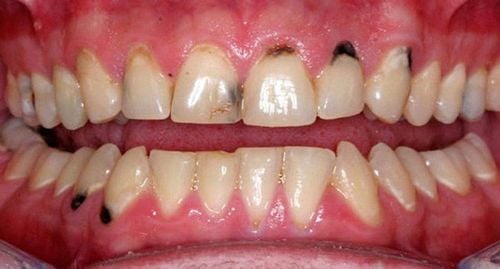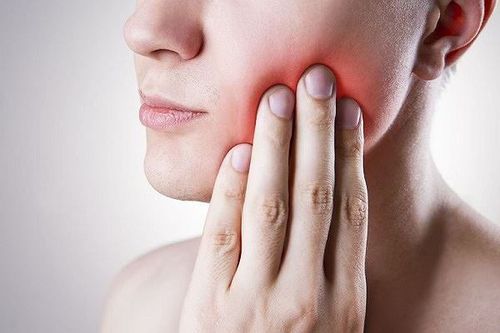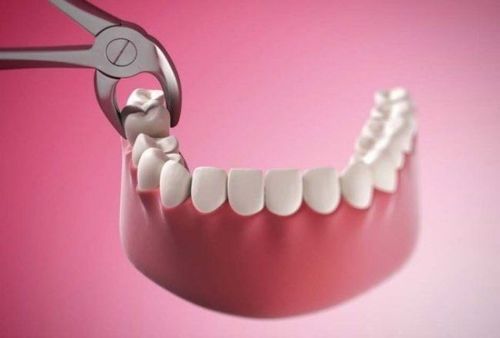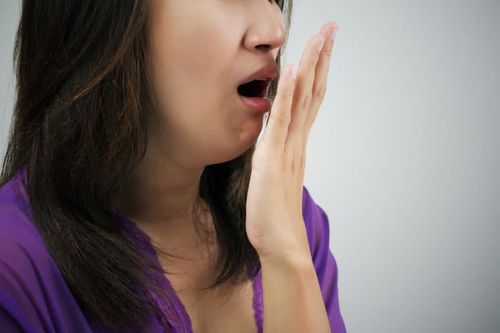This article is professionally reviewed by MSc. Nguyen Thi Ngoc, a General Internal Medicine and Endocrinology Doctor at the Department of Internal Medicine and Outpatient Services, Vinmec Central Park International General Hospital. Dr. Ngoc has over 10 years of experience in studying, researching, and working in Endocrinology.
Saliva secreted by the salivary glands plays a crucial role in the digestion of food in humans. Both insufficient and excessive saliva secretion are conditions that warrant attention, as they may indicate potential abnormalities in the body.
1. Hypersalivation related to which diseases?
According to researchers, about 800 - 1500 ml of saliva is secreted everyday. The main components of salivary are mucus, digestive enzymes. minerals, protein, antibacterial reagents, white blood cells…Saliva plays an important role in food digestion by making them wet to easily swallow, make the oral cavity humid, degenerate carbs using amylase, oral disinfection thanks to lysozymes and antibodies...."
Saliva is a fluid in the oral cavity, responsible for facilitating smooth digestion within the body. Hypersalivation may serve as a warning sign of the following conditions:
1.1 Gastroesophageal reflux disease (GERD)
Patients with GERD have irritated mucosa and lead to the consequences of hypersalivation, belching and acid regurgitation. Saliva produced during this time may have a sour taste. Patients should consult a doctor to confirm their health condition and make appropriate lifestyle changes.
Patients with GERD have irritated mucosa and lead to the consequences of hypersalivation
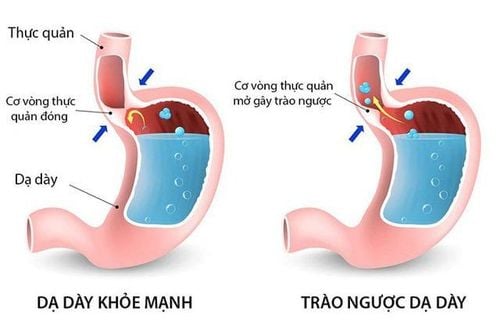
1.2 Pancreatitis
Pancreatitis causes the dysfunction of the pancreas and increases saliva secretion, therefore, think about pancreatitis if it is long-term hypersalivation.
1.3 Liver disease
Medically, the amount of saliva produced in the oral cavity is regulated by the nervous system. Therefore, when liver disease occurs, the nervous system can also be affected, leading to excessive saliva production in the patient's mouth.
1.4 Oral-dental diseases
If patients suffer from oral-dental disease such as canker sores or tonsillitis can also cause hyposalivation in the oral cavity. Please consult a dentist to evaluate your health conditions to determine the appropriate treatment.
2. What causes hypersalivation?
In terms of anatomy, the parotid glands are located at the angle of the jaw on both sides. Common causes of excessive salivation include:
- Consumption of hot or sweet foods: In fact, it has been proven that spicy or sweet foods stimulate the body to produce more saliva.
- Blocked parotid ducts: This is the very common cause of hypersalivation. The parotid duct transports saliva from the parotid gland to the mouth. In some cases, stones may form, blocking the duct and causing excessive saliva secretion.
- Salivary gland inflammation: The cause of hypersalivation is Inflammation, if one of the salivary glands: parotid, submandibular, or sublingual inflammation can lead to salivary gland inflammation.
- Teething or poor oral hygiene: In children, excessive salivation may be due to teething. Parents do not need to be worried but should check their child’s oral health and address the issue appropriately.
- Pellagra: A condition caused by niacin deficiency, characterized by excessive saliva production.
- Rabies: If excessive saliva is linked to rabies, immediate medical attention is necessary.
3. Effective treatment of hypersalivation
To alleviate excessive saliva production, patients should consider diet, reduce the consumption of spicy, sweet, or overly salty foods, and avoid chewing gum…
In addition, regularly drinking water and drinking small amounts of water are also effective ways to control hypersalivation.
Adopt a healthy lifestyle: avoid late at night, manage stress, and take time to relax after a busy day, maintain good oral hygiene
Regular health check-ups to promptly diagnose and timely treatment can effectively prevent excessive salivation.
If the condition persists in a long-term period, consult a doctor for a thorough examination and personalized advice. Do not self-medicate, as improper use of medications may cause unwanted side effects and worsen the condition.
Currently, some medications containing atropine can temporarily suppress saliva production, however it is only used in specific conditions when performing oral surgery and it only has the short-term effect. You should only be used under a specialist's supervision.
In addition, regularly drinking water and taking small sips is also an effective way to treat increased salivation. Build healthy living habits, avoid staying up late and let your body under too much pressure, take time to relax after a tiring working day, clean your teeth and gums. Periodic health check to diagnose disease and timely treatment is also an effective way to prevent increased salivation. If increased salivation occurs for a long time, the patient should see a doctor to be examined and given specific advice for each case. Absolutely do not arbitrarily use medication because it can cause many unwanted side effects and increase the disease condition. Currently, some drugs that reduce salivation with atropine can temporarily stop saliva production, but this drug is only used in special cases when having surgery on the oral cavity and only works for a short time. In short, the use of medication must be prescribed by a specialist.Please dial HOTLINE for more information or register for an appointment HERE. Download MyVinmec app to make appointments faster and to manage your bookings easily.




